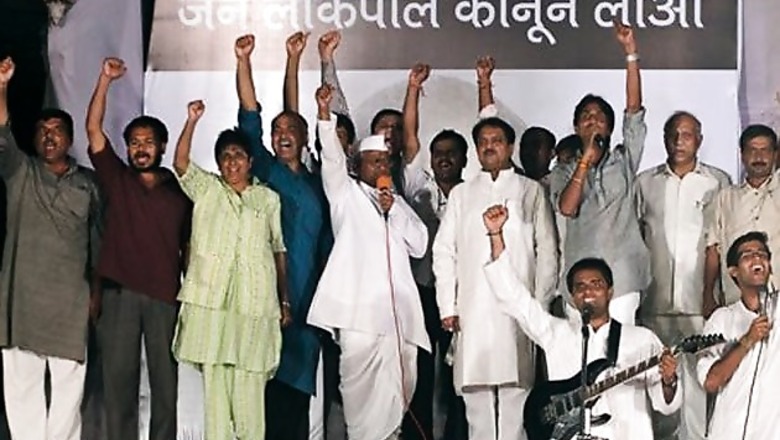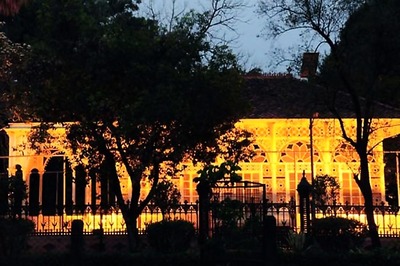
views
New Delhi: Hitting out at politicians on the eve of Republic Day, Team Anna on Wednesday argued for more people's participation in lawmaking process claiming that one cannot trust elected representatives as they could easily be managed by corporates who have "vested" interests.
Seeking to counter the argument that common man cannot understand complex issues like Lokpal Bill, nuclear energy or GM foods, it asked whether the MPs or Ministers were experts on these subjects to deal with them.
Team Anna alleged that the lawmakers ignore people's wishes while framing laws and often take decisions on the basis of "self interest or on extraneous and often corrupt" considerations.
It said people often use of money and muscle power to get elected and this is why major parties were lining up to induct even those persons who have been "kicked out for corruption by the corrupt BSP government" on the eve of the elections.
Team Anna also accused the government of using obstructionist tactics and engineering disturbances during debate on Lokpal Bill in Rajya Sabha to ensure that the legislation was not enacted.
The accusations against the government is part of a concept note it publicised for a seminar 'Rebuilding the Republic' being organised by Team Anna in the national capital on Thursday. Anna Hazare will not attend the seminar due to health concerns.
"These elected representatives are far easier to manage by commercial vested interests than the entire electorate. Therefore, it would be much safer to trust the people than these elected representatives," the note said.
Rubbishing arguments that people cannot comprehend complex issues, it asked "but are our MPs or Ministers experts on these subjects? After all they are deciding such critical matters which affect large sections of society. If they can take a view on it by taking into account the views of experts, so can the people."
After getting elected, Team Anna alleged, the lawmakers do not take decisions by finding out what people want.
Often, their concept note claimed, such decisions are taken usually at the level of party high commands on the basis of "self interest" as in the case of the Lokpal Bill or on extraneous and often corrupt considerations.
"That is why Acts which vitally affect millions of persons like the SEZ Act get passed in Parliament in minutes without any discussion and the Lokpal Bill remains stuck for decades.
"Parliament these days get adjourned frequently due to disturbances created sometimes by a few MPs and only a small fraction of its time is devoted to real work," it said.
Alleging that policies against people's interests have been pushed through by government for commercial interests of big Indian and foreign corporations, it said, "the same is evident from the manner in which the government and Parliament has dealt with the Lokpal Bill.
"When amendments moved by the opposition parties to cure some of these defects were likely to be passed, the government filibustered and engineered disturbances and the bill was left hanging in the air," it said.
It said this was evident from the manner in which the government and Parliament has dealt with the Lokpal Bill.
"While all polls, surveys and referenda were showing that more than 80 per cent favoured the Jan Lokpal Bill, government introduced a bill that bore little resemblance to it, and defeated the very purpose of it by making it a body selected and controlled by government and making it dependant on its investigating agencies," it said.
The note said only candidates of "large, established and moneyed" parties have any realistic chance of getting elected, because of the nature of the electoral system in which "honest and hardworking" people who have contested as independents or candidates of small parties fare poorly in elections.
"What we are seeing is not an imperfection in the working of our democracy but virtually a total breakdown, where, as we are seeing, the popular will is rarely getting reflected in governance and law making," Team Anna said.
The challenge is to put in place a system whereby the views of people are directly taken into account in major policy decisions and laws rather than these being decided by elected representatives.
"Such a system is already in place in tribal areas through the PESA Act which provides for the Gram Sabha to take all public decisions pertaining to the village, though mostly this has remained only on paper," it said.


















Comments
0 comment